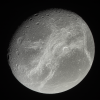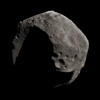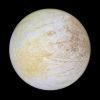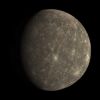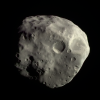Emily Lakdawalla • Dec 05, 2009
Planetary Society Advent Calendar for December 5: Epimetheus
Epimetheus is one of the many small moons of Saturn that are referred to by the Cassini mission team as "rocks" though they are probably mostly made of ice, not rock. I think that the name "rock" comes from their lumpy shape, like a rock you might pick up on the ground. That lumpy shape arises from their small size; they do not have strong enough self-gravity to overcome the strength of the stuff they're composed from, so when a chance encounter with another thing in orbit around Saturn bangs a huge hole into one of them, the hole stays. However, the "rocks" do have enough gravity that some dust does manage to stick to them, giving them an oddly smooth surface in places.
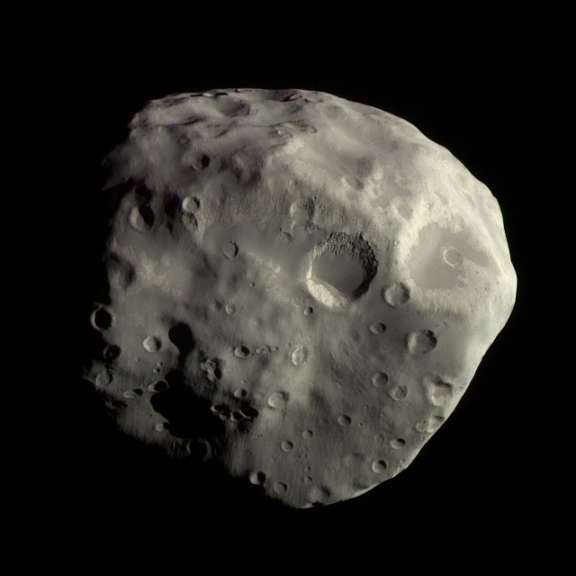
At 135 by 108 by 105 kilometers in diameter, Epimetheus is the second biggest of the rocks. The biggest is Janus. Epimetheus and Janus orbit Saturn at pretty much, but not quite the same distance. The very slight difference -- just a few kilometers -- in their orbital distance from Saturn means that one of them orbits very slightly faster than the other. Every two years, they approach relatively close to each other in their orbits. But they never meet. They don't crash, they don't even do-si-do; in square dance terms, it's more of a "bow to your partner." Once they get within six degrees of each other, they start exchanging momentum, the inner (faster) moon slows and its orbit expands, while the outer (slower) moon speeds up and its orbit shrinks. They exchange positions relative to Saturn, and start moving apart, to approach again two years later. For the last two years, Epimetheus has been the farther of the two from Saturn; they're now starting their interaction period, and they'll exchange orbital positions in the middle of January.
Each day in December I'm posting a new global shot of a solar system body, processed by an amateur. Go to the blog homepage to open the most recent door in the planetary advent calendar!
Support our core enterprises
Your support powers our mission to explore worlds, find life, and defend Earth. You make all the difference when you make a gift. Give today!
Donate

 Explore Worlds
Explore Worlds Find Life
Find Life Defend Earth
Defend Earth


